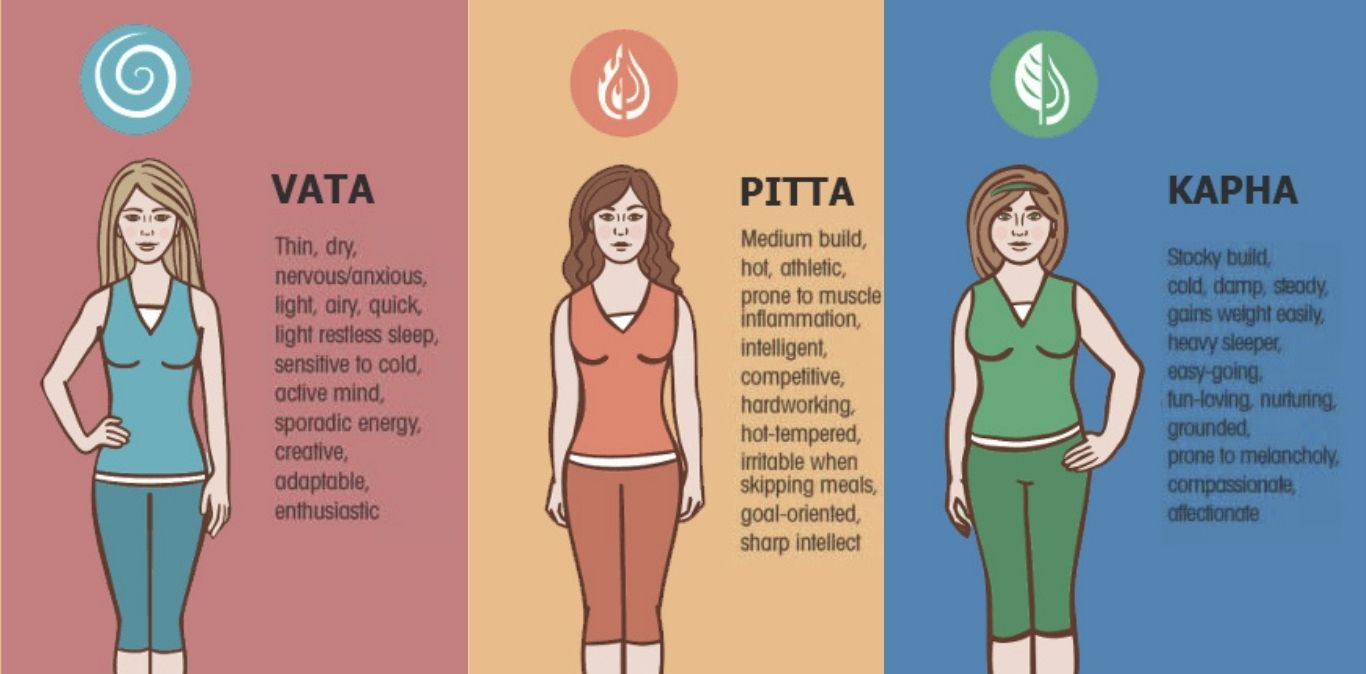Vata Pitta Kapha Characteristics

In Ayurveda, the ancient Indian system of medicine, the human body is believed to be governed by three primary energies or doshas: Vata Pitta Kapha each dosha has unique characteristics and functions within the body. Understanding these doshas can help us maintain balance and promote well-being. Let’s explore each dosha in more detail:
Vata
Characteristics
Associated with the elements of air and space. It is light, dry, cold, rough, and mobile.
Physical Functions
Vata governs movements in the body, including breathing, blood circulation, muscle contractions, and the transmission of nerve impulses.
Mental and Emotional Traits
Vata influences creativity, enthusiasm, quick thinking, and flexibility. When imbalanced, it can lead to anxiety, restlessness, and scattered thoughts.
Imbalance Symptoms
Imbalanced Vata may manifest as dry skin, constipation, insomnia, weight loss, and irregular digestion.
Pitta
Characteristics
Associated with the elements of fire and water. It is hot, sharp, light, slightly oily, and intense.
Physical Functions
Pitta governs digestion, metabolism, body temperature regulation, and hormonal balance. It is responsible for transforming food into nutrients and energy.
Mental and Emotional Traits
Associated with intelligence, ambition, focus, and strong willpower. When imbalanced, it can lead to anger, irritability, and critical behavior.
Imbalance Symptoms
Imbalanced Pitta may result in excessive body heat, acid reflux, inflammation, skin rashes, and indigestion.
Kapha
Characteristics
Associated with the elements of earth and water. It is heavy, slow, cool, moist, and stable.
Physical Functions
Kapha provides structure and lubrication to the body. It governs stability, immunity, joint health, and the formation of tissues.
Mental and Emotional Traits
Associated with calmness, compassion, patience, and emotional stability. When imbalanced, it can lead to attachment, lethargy, and resistance to change.
Imbalance Symptoms
Imbalanced Kapha may manifest as weight gain, sluggish digestion, congestion, excess mucus, and a feeling of heaviness.
It’s important to note that each person has a unique combination of these doshas, with one or two typically being more dominant. The balance and harmony among these doshas contribute to our overall health and well-being. Imbalances can occur due to various factors such as lifestyle choices, diet, stress, environmental influences, and seasonal changes.
Ayurveda aims to restore balance by providing personalized recommendations for diet, lifestyle, herbal remedies, and therapies. By understanding our doshic constitution and making appropriate adjustments, we can optimize our health and prevent the onset of diseases. Consultation with an Ayurvedic practitioner is recommended for a comprehensive assessment of your dosha composition and guidance on maintaining a balanced and healthy life.

1 Comment